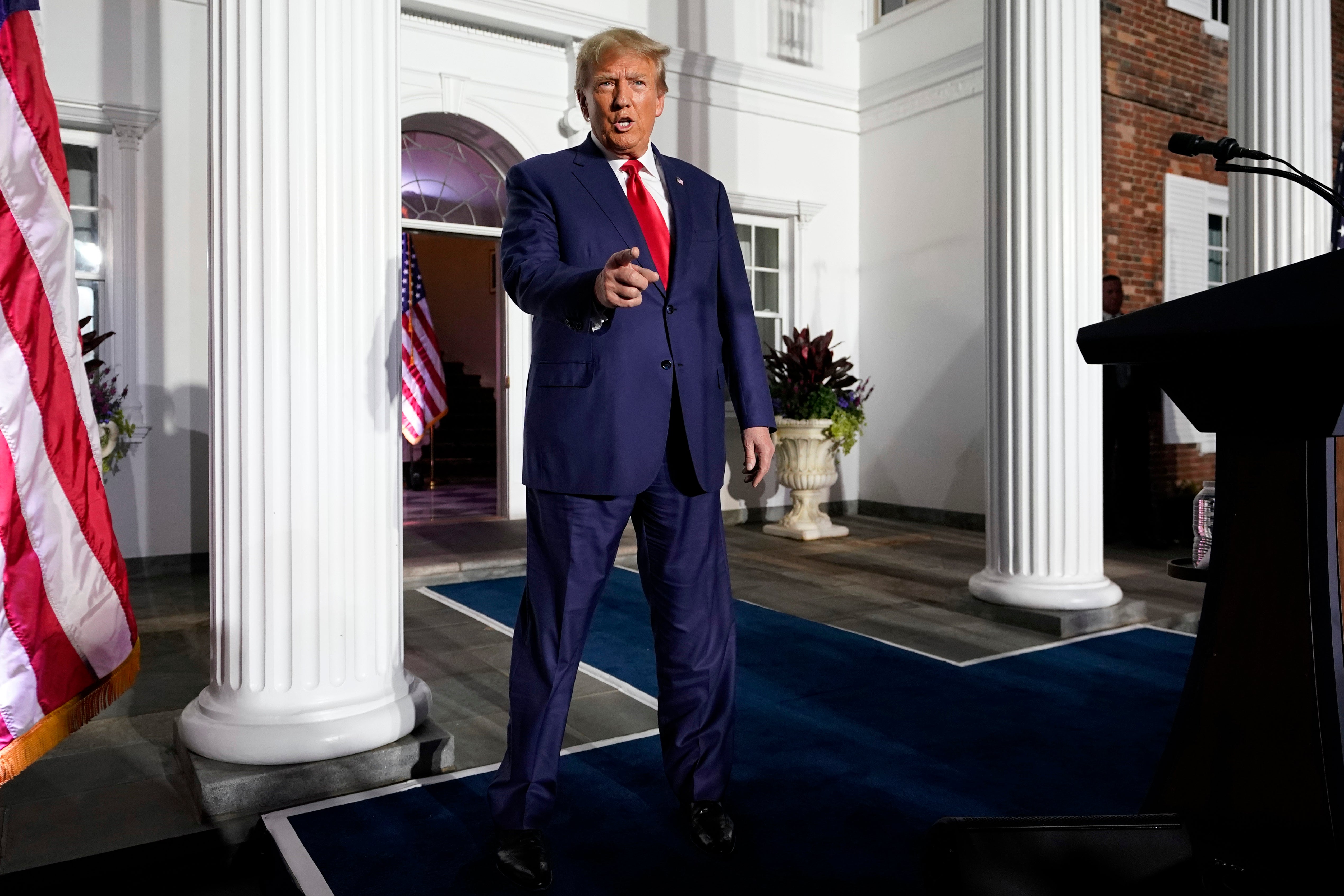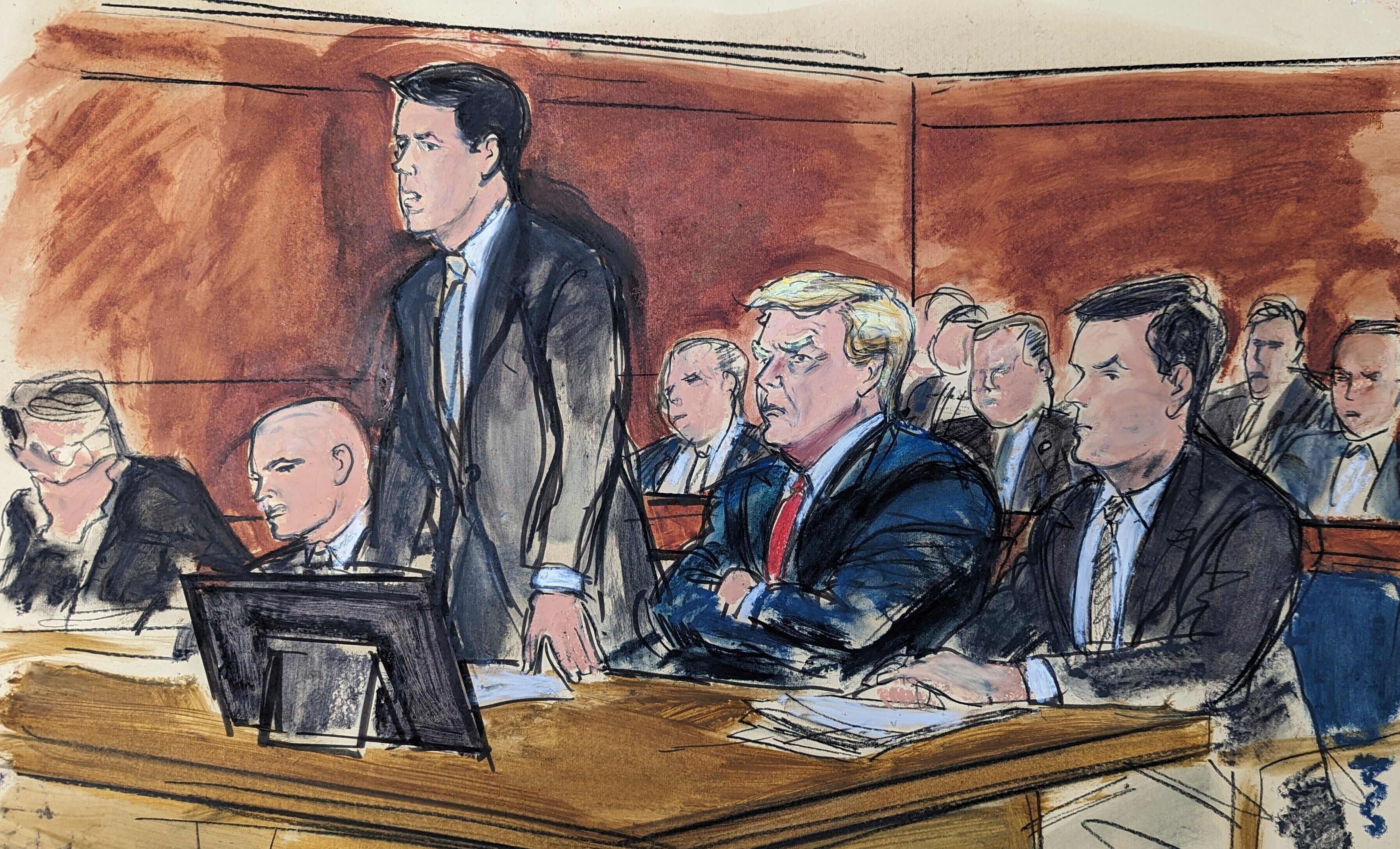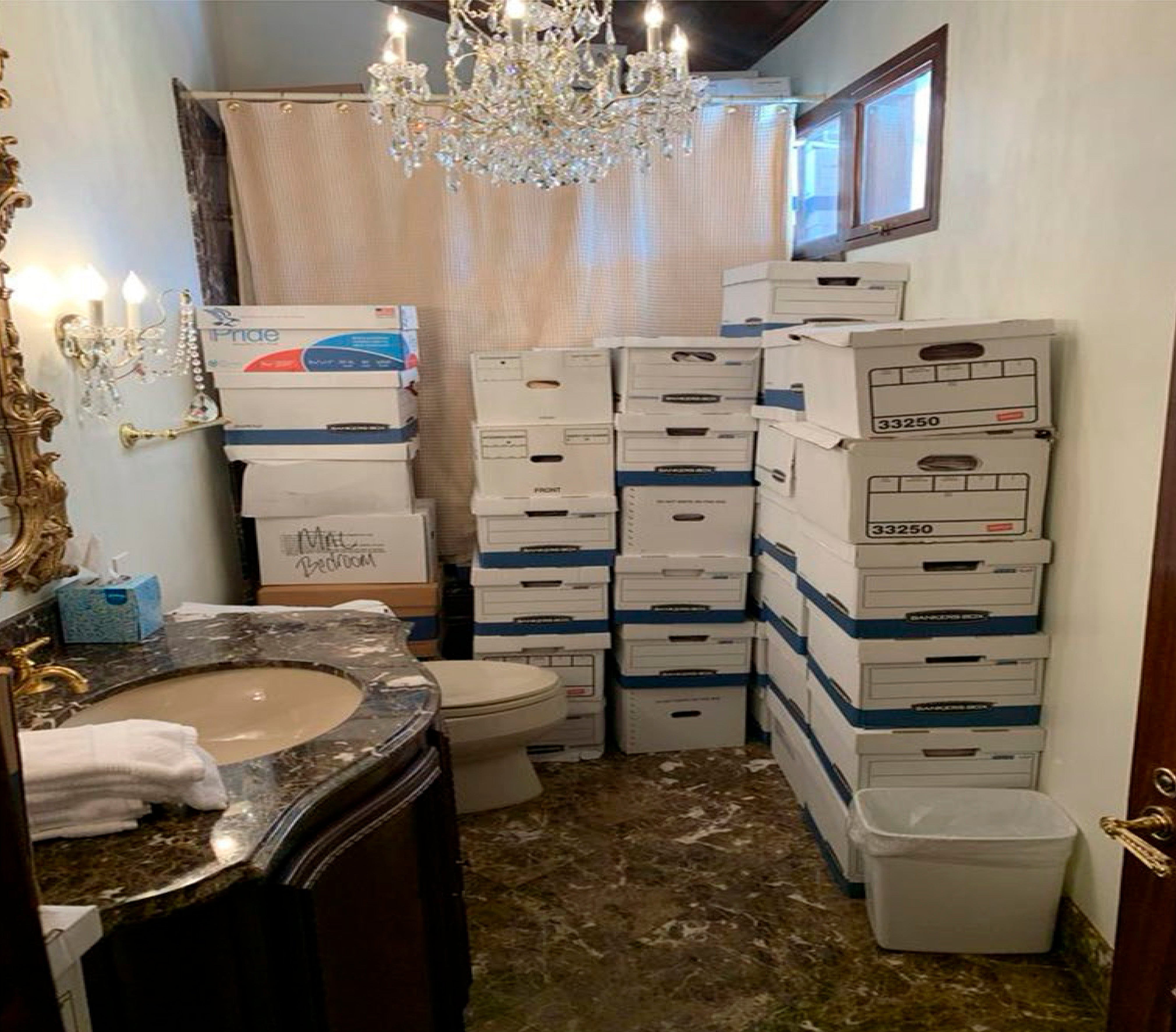Trump can’t bully his way out of his latest legal woes – he’s just too stubborn to know when he’s beaten
The disgraced former president seems not to have realised that there’s a very good chance he will go to prison, writes Andrew Feinberg


If you took the time to hear Donald Trump describe his newfound status as a twice-indicted former president who faces felony charges in two separate jurisdictions, you’d have encountered familiar howls of denial and claims of a witch-hunt.
Mr Trump has long described any effort to hold him to account for anything in similar terms, be it his campaign’s tacit acceptance of Russia’s efforts to interfere in the 2016 election, his attempt to blackmail a foreign leader into investigating his potential 2020 election opponent, or his efforts to remain in office against the will of voters.
And with the aid of his former position as president of the United States, and more recently a veritable Greek chorus of surrogates in Congress and on television airwaves, Mr Trump has thus far escaped the vast majority of negative consequences that his opponents hoped would befall him.
Two impeachments – including one after a bloody riot that saw the Capitol attacked for the first time since British troops burned it in 1814 – failed to garner the requisite two-thirds of Senate votes needed to remove him from office or bar him from returning to power.
An 18-month criminal probe into the events of 2016 faltered when the Department of Justice ran up against a decades-old prohibition against prosecuting sitting presidents. And his rabid and rapaciously loyal base of supporters’ refusal to even consider the possibility that he has ever done anything wrong has kept him at the forefront of Republican politics and ensured he remains the odds-on favourite to carry the GOP banner in the next presidential election.
Yet even as Mr Trump continues claims of victimhood and accuses the Department of Justice of carrying out a political errand on behalf of the man who defeated him nearly three years ago, the fact remains that the former president’s odds of remaining a free man, unless he strikes a plea deal with prosecutors, are extremely slim.

His latest court appearance in Florida on Tuesday evening was the first time a former president has faced federal prosecution. He pleaded not guilty to 37 charges of mishandling classified information, after a stash of documents were found at his Mar-a-Lago estate, including in a bathroom.
Mr Trump has indicated that his defence will hinge on an obscure, decade-old court ruling from which he claims to have had sweeping authority to simply convert any official document he was handed in the course of his presidential duties into his own personal property.
He has also ramped up his efforts to poison what could be a favourable jury pool in his adopted home state by attacking the prosecutor responsible for bringing the charges against him, special counsel Jack Smith, as well as Mr Smith’s wife, a documentary filmmaker whose resume includes a film about former first lady Michelle Obama. Mr Trump has repeatedly accused Mr Smith of working at the behest of the White House despite the lack of any evidence to support such a bold accusation.
There’s just one problem with all that: none of it will matter when prosecutors present the evidence against him at trial.
Roughly 10 months ago, in the wake of the FBI’s court-authorised search of the former president’s property, I spoke to a person I’d known since university who has made a career for himself as a naval officer in the American submarine service.

I asked him about a report that some of the documents recovered from Mr Trump’s property included documents containing data on nuclear capabilities – either ours or some other nation’s.
At the time, his response was simple. He told me that the 45th president of the United States would be “going to prison” without fail and described the law governing such sensitive national defence information as akin to prohibitions against possession of child pornography. “If he has the documents in his possession or on his property, he will go to prison,” he said.
Nearly a year later, we know far more about what Mr Trump did during the nearly 18-month period when the government he once led was desperately trying to recover those documents from him.
Not only did he have the documents on his property, but if prosecutors are to be believed, Mr Trump engaged in a concerted effort to keep the government from even knowing that he had many of the most sensitive documents.
According to the indictment, he ordered his personal aide turned co-defendant, ex-navy chief petty officer Walt Nauta, to move boxes between the storage room where he’d told his attorneys the documents could be found as they sought to comply with a grand jury subpoena, and other locations at his Florida property where his lawyers were not expected to look.
So not only did he not hold on to sensitive documents long after he was authorised to have them, while refusing to give the documents back when asked to do so, but he allegedly misled his own lawyers about the whole matter and caused others to lie to the government to protect him.
Mr Trump would like to believe he can bluster and bully his way out of this situation, just like he used his political stature and his former office to run roughshod over prior attempts to check his behaviour.
He would like you to believe that his obscure legal theory, which appears to have been put in his ear by a non-lawyer spokesperson for a right-wing watchdog group, is a magic get-out-of-jail card, and he would like you to believe he is being persecuted on orders from the sitting president.
But this time, none of that will matter, because he’s no longer president and he had the documents when he wasn’t supposed to have them. The problem for Mr Trump is that he’s too stubborn to know when he’s beaten.






Join our commenting forum
Join thought-provoking conversations, follow other Independent readers and see their replies
Comments